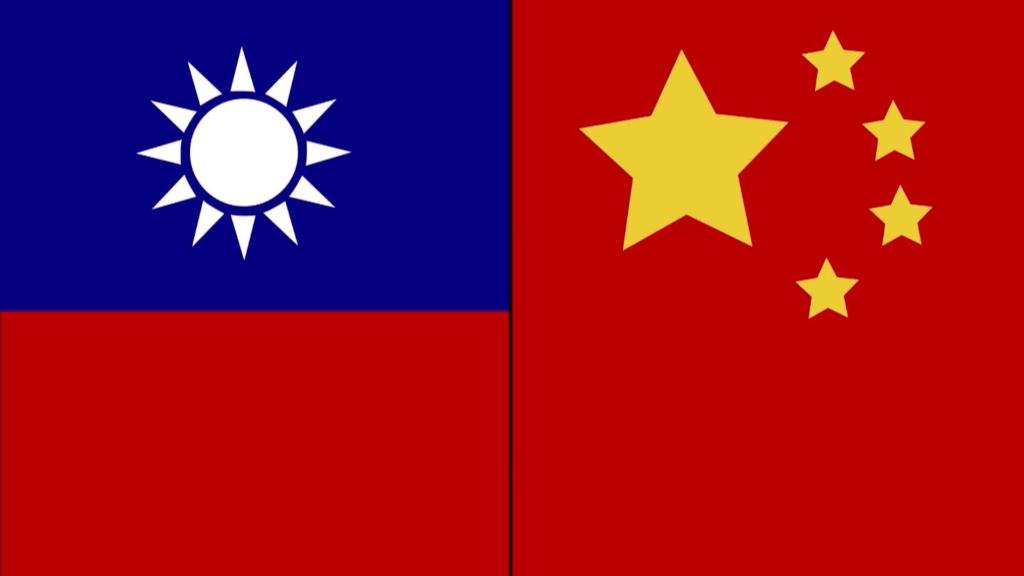
US airlines have changed their websites to keep China happy, hours before a deadline for them to do so expired.
Beijing had demanded that American Airlines (AAL), Delta (DAL) and United (UAL) change how they refer to Taiwan by Wednesday, or risk sanctions in one of the world's biggest markets for air travel.
American Airlines and Delta updated their websites on Wednesday to show they fly to Taipei, with no mention of Taiwan. A few hours earlier, both websites offered flights to "Taipei, Taiwan."
United also removed references to "TW" — short for Taiwan — from its website, dropping country designations for all cities in Taiwan and China.
Related: Why US companies are changing their websites to please China
China and Taiwan have been governed separately since 1949 following the Communist victory on the mainland after a civil war, although a shared cultural and linguistic heritage mostly endures.
But China considers Taiwan to be an integral part of its territory, and comes down hard on any suggestions to the contrary.
"Like other carriers, American is implementing changes to address China's request. Air travel is global business, and we abide by the rules in countries where we operate," American spokeswoman Shannon Gilson told CNN.
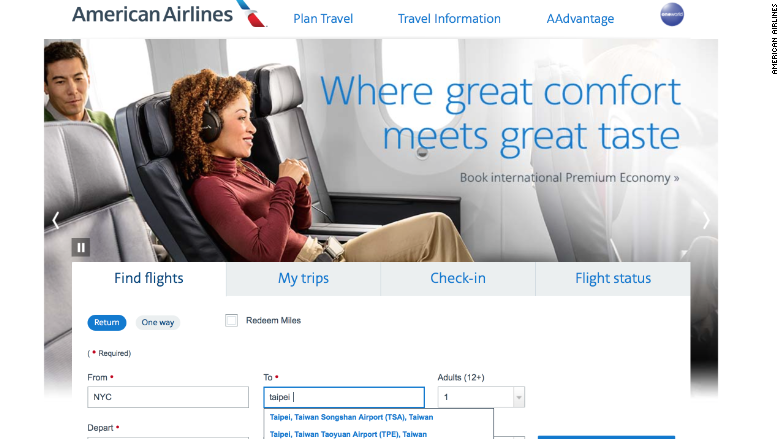
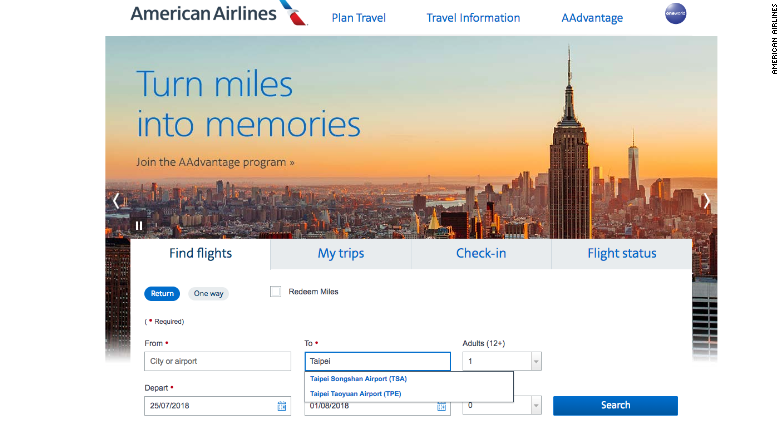
United did not respond to a request for comment. Delta declined to comment and referred questions to Airlines for America (A4A), which represents the US airline industry.
"The US airline industry is a global business that must contend with a host of regulations and requirements," the association said in a statement on Tuesday.
"A4A and the affected US airlines appreciate the engagement and counsel we have received from the administration as carriers begin to implement a solution," it added.
The instructions from China provoked a strong reaction from the United States earlier in the year. The White House slammed the demands as "Orwellian nonsense," describing them as "part of a growing trend by the Chinese Communist Party to impose its political views on American citizens and private companies."
Related: How China gets what it wants from American companies
But international airlines and other global brands are caught in a bind. It's vital for their business that they stay in China's good books. The International Air Transport Association forecast last year that China would surpass the United States as the world's top aviation market by 2020.
Many airlines, such as Australia's Qantas (QABSY), Air Canada (ACDVF) and Air India, have already changed their websites.
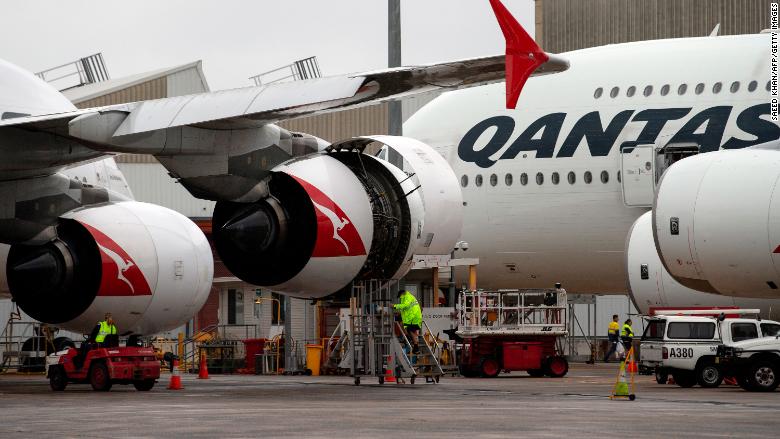
Geng Shuang, a spokesman for China's Ministry of Foreign Affairs, said Wednesday that the government had "noted some positive developments" in the way in which foreign airlines refer to Taiwan.
"We agree with the changes made by the relevant foreign airlines," he told a regular press briefing.
China hadn't spelled out what the punishments might be for airlines that failed to comply with its demands.
Earlier this year, it blocked Marriott (MAR) websites and apps for a week in the country after the hotel company listed Tibet, Hong Kong, Macau and Taiwan as separate countries in emails and apps.
Hong Kong and Macau are former European colonies that were returned to China in the late 1990s, becoming regions with a large degree of administrative autonomy. Tibet has been under Beijing's control since 1951.
Related: Delta flies into China trouble over Tibet and Taiwan
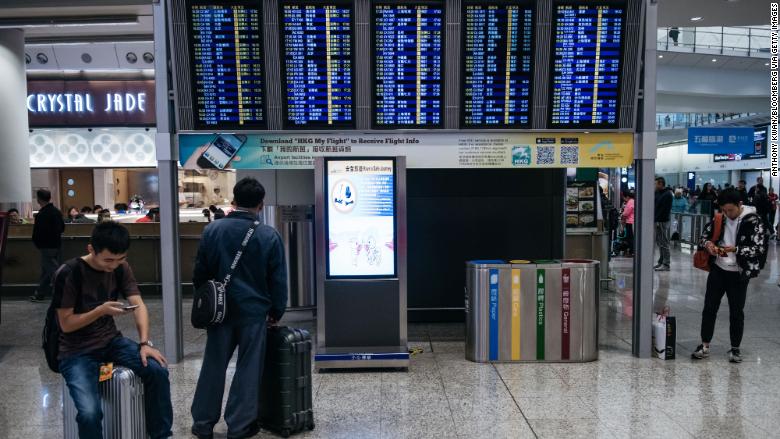
Marriott issued a profuse public apology over the matter and conducted a full review of its Chinese website and apps.
China has orchestrated boycotts of foreign companies in the past. Last year, it squeezed the economy of South Korea, which had angered the Chinese government with the deployment of a US missile defense system.
The measures included an unofficial order to Chinese travel agencies to halt tour groups to South Korea. Within months, the number of Chinese tourists visiting the country had fallen by almost 50%, hurting South Korean operators of hotels, duty free stores and other travel businesses.
-- Steven Jiang and Tim Schwarz contributed to this report.

